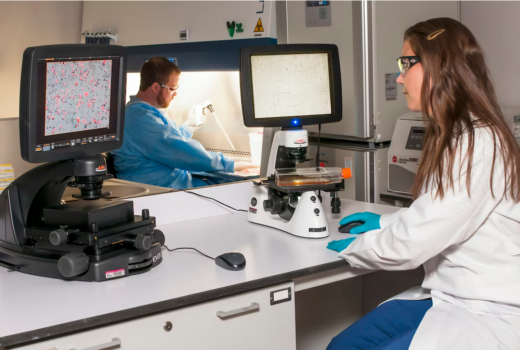Kloondieren ethisch problematisch
The European Group on Ethics in Science and New Technology (EGE) said that due to the level of suffering of the mothers into which a cloned embryo is placed and the health problems of the animal clones themselves, the group “has doubts as to whether cloning animals for food supply is ethically justified.” Cloned animals are faced with a wide range of health problems, with a high death rate and a high incidence of disease. Clones commonly suffer from premature ageing; enlarged tongues; squashed faces; intestinal blockages; immune deficiencies; diabetes; heart, lung and liver damage; kidney failure; and brain abnormalities. Surrogate mothers are also burdened with significant suffering and a high death rate, in particular as a result of ‘large-offspring syndrome’.
The EGE made the comments in a published opinion on the ethical aspects of animal cloning for food supply. The opinion is in stark contrast to the views of the European Food and Safety Agency (EFSA), which two days ago declared cloned food to be safe to eat or drink its own report on the subject. The US Food and Drug Administration (FDA) issued its own opinion on cloned food, also declaring cloned food safe for consumption. Both the EFSA and EGE opinions had been requested by the commission months ago in response to announcements that the US FDA was to consider the issue of cloned food, said commission spokesperson Nina Papadoulaki.
“There’s no conspiracy. It’s just an odd coincidence,” she added, referring to the close timing of the US and EU opinions. When asked about the disagreement between the two groups, Ms Papadoulaki, said that there was no problem – the commission would go away and consider the two opinions. “It’s a sort of mathematics: EFSA plus EGE equals risk assessment; the commission equals risk management.”
In a nuanced consideration of the controversial issue, the ethics group said that while “at present, the EGE does not see convincing arguments to justify the production of food from clones and their offspring,” if in the future cloned animals were to be introduced to the European market, a series of stringent demands would first have to be met. The cloning of animals would have to accord with norms of animal welfare, and the animals would have to meet current EU traceability legislation requirements.
The EGE further recommended that the commission take proper measures to preserve farm animal biodiversity, a key concern regarding cloning. According to Eurogroup for Animals, a federation of European animal welfare advocates, cloning would greatly reduce genetic diversity within livestock populations, increasing the chances of whole herds being wiped out by disease. Additionally, in the event that cloned food is allowed into Europe, the EGE calls for a system of labelling.The ethics group said that although compliance with World Trade Organisations provisions may complicate decisions on cloned food, the commission must ensure consumer rights.
The EGE is an independent body composed of fifteen experts appointed by the commission for their ethical expertise. Members represent a broad range of disciplines such as biology and genetics, medicine, pharmacology, agricultural sciences, ICTs, law, ethics, philosophy, and theology. The task of the group is to examine ethical questions arising from science and new technologies and then issue opinions to the commission.
Meest Gelezen
Vrouwen houden universiteit draaiende, maar krijgen daarvoor geen waardering
Hbo-docent wil wel rolmodel zijn, maar niet eigen moreel kompas opdringen
Wederom intimidatie van journalisten door universiteit, nu in Delft
‘Waarom het nu niet lukt om medezeggenschap in hbo te versterken’
‘Sluijsmans et al. slaan de plank volledig mis’


